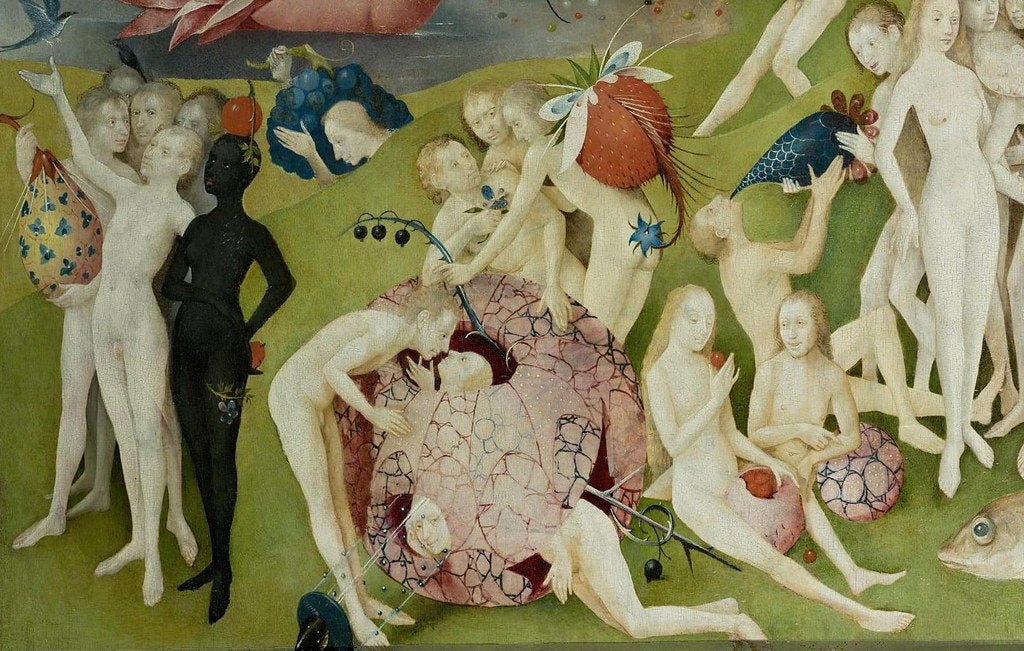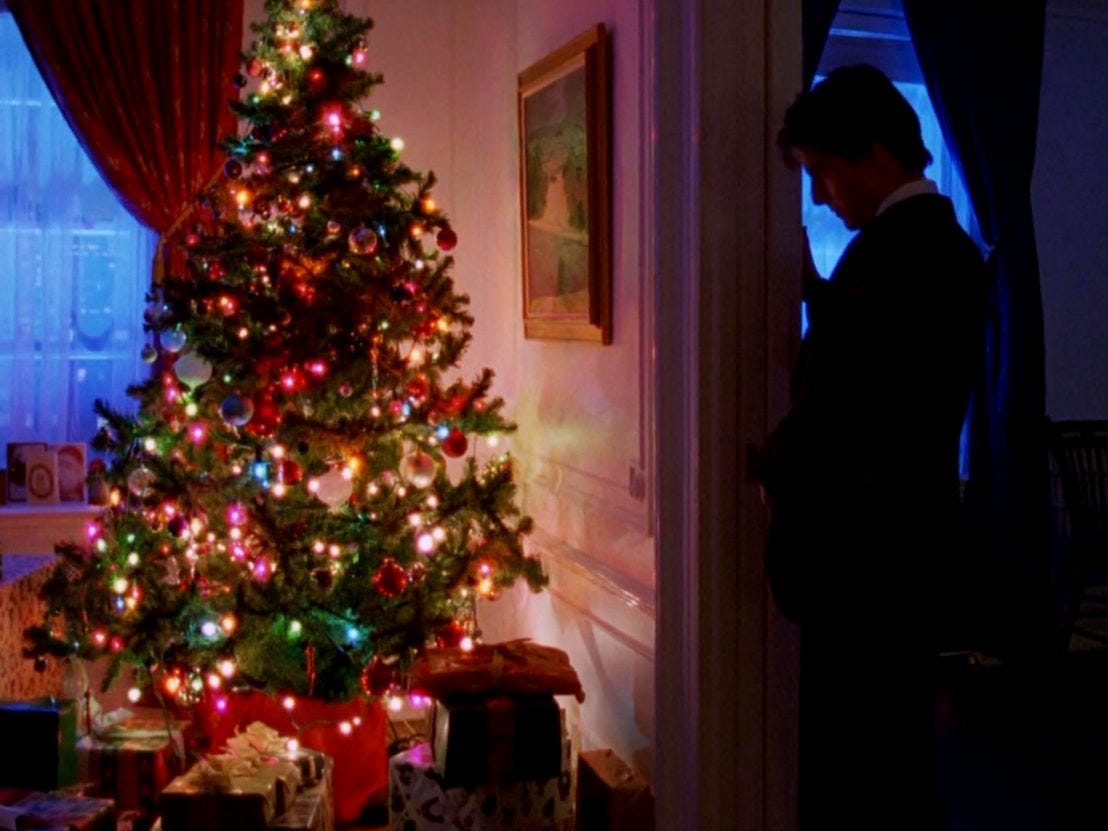Gravity's Rainbow - Part 1 - Chapter 16.1: Transactional Love
Analysis of Gravity's Rainbow, Part 1 - Chapter 16.1: Before the War's Evensong
Roger and Jessica were last seen holding each other after a rocket strike outside their flat, and now here they are — in their past, at least — in their first sexual encounter: “The very first touch” (120). There is self-conscious worrying, reassurances that mean nothing, and numerous orgasms “before cock was ever officially put inside cunt” (120), for their climactic pleasure does not stem from sexual gratification at the moment, but the human connection that they have so long lacked. Roger’s self-consciousness seeps into his curiosity about Jessica and her boyfriend, “Beaver, or Jeremy, as he is known to his mother” (121). Despite their relationship being built currently on the need for human connection — and Jessica finding more connection with Roger than she had with Beaver — Roger cannot separate this from the sexual. His self-worth seems built upon what he has done to Jessica — in the sexual sense of the word — and what Beaver has failed, or not even attempted, to do. And because of this, he can find no true solace or comfort in his place — he views her in a childish manner, as something or someone who will stay with him if he keeps her pleased or at least takes care of certain needs.
-
Jessica obliges Roger’s odd sexual desires, whether they be there to please her or if he just is a little bit of a pervert (which, no shame either way, of course), and goes topless in a car as they drive down the highway only to be gawked at by a number of chuckling midgets and to be nearly caught by a police lorry. That thing that both of them believes is the foundation of their current affair is now becoming a spectacle for others, and an illegal one at that.
-
When he is asleep, Jessica watches him, like a guardian angel, and out pour her true feelings, unbound by that wake-state of sexual desire. Instead, she admires the curve of his neck, kisses him to comfort his sleeping mind, “kisses him as if kisses were flowing breath itself, and never ending” (124).
-
Now back from all those memories of the past — because remember, these were all just memories — Roger awakes in a cell at The White Visitation with a single hair in his mouth. A hair that, so he believes, could be none other than Jessica’s. But how? What happened to her? Because he had not seen her for so long. It couldn’t be hers, could it?
It seems that The White Visitation is not only intent on capitalizing on the paranoia of Slothrop, but intends on keeping its own employees or agents in a constant state as well — or, perhaps, Roger is just being paranoid to his own fault. Nonetheless, it calls to mind all those possibilities: mind control, hypnotism, potions even. It drives him to a desire to transfer over to the German side — the same country who has been sending those bombs right across the water, disturbing his and Jessica’s quiet nights. But that’s only a desire; not likely something he will act upon.
And anyway, it’s Christmastime. The snows begin to fall (and the falling rockets haven’t stopped either). Though, Christmas means nothing any more than more memories of the past, seven having gone past since The War began and not an end yet in sight, just bomb after bomb falling seemingly as frequently as snow, and Jessica the only change he has seen since the start of it all, herself unphased, for it is all she really knows. It gives him some hope at least, that perhaps these depressions have an end: if she can believe that “nothing is fixed” and “everything could be changed” (126), why couldn’t he?
-
Jessica will be with Beaver tonight (we’re in her present now) “but she wants to be with Roger. Except that, really, she doesn’t. Does she?” (126). In a world like this, our own contemporary capitalist West, built on military and industry and death and profit, how can you blame someone for desiring stability over love. They are training us to put love to the side, to say we’d rather have an extra buck, a man with insurance, a person who can provide everything else but love. Because Roger sees everything at fault with our world, he attempts to be unbeholden to these processes. He “hates ‘the System’” (126) and because of that, will not give in. And it’s not like she hates Beaver; she’s been with him for three years now for Christ’s sake. She’s done everything with him and for him: “worn old Beaver’s bathrobes, brewed his tea and coffee, sought his eye across lorry-parks, day rooms and rainy mud fields when all the day’s mean, dismal losses could be rescued in the one look — familiar, full of trust” (126-127). Roger can’t provide that stability, and she wonders how he can be so immature for someone his age, how he can lack such experience.
But perhaps the experience she seeks is what leads to his cynicism. Maybe Jessica, born into the war, cannot comprehend why Roger is as he is. Neither are to blame — The System that Roger so hates is. It is what has led to this disparity of what love should be or should give. It takes the humanity out of any love-based institution, any institution based on humanity, that is and renders it itself as another means for monetary gain or for protection from The System. It has taken the most raw and powerful human connection and has turned it into nothing but another transaction. We no longer even know love anymore — sometimes viewing it as sex, fetish, or just holding one another. But even that is not enough. Even that feeling that we may know exists in the background of these acts, that magnetic and euphoric pull tugging Roger and Jessica together, is no longer enough.
That’s the first half of The War’s Evensong. Though, we didn’t even get to the song itself. The song, and the rest of the chapter, will be for next week. This week though is one of the most powerful pieces on love and how love has been ruined by our “System.” Or how pretty much anything has been ruined by it. Everything is now just another transaction to provide another safety net. Stay tuned for the second half next week, which, somehow, is even better than the first.





